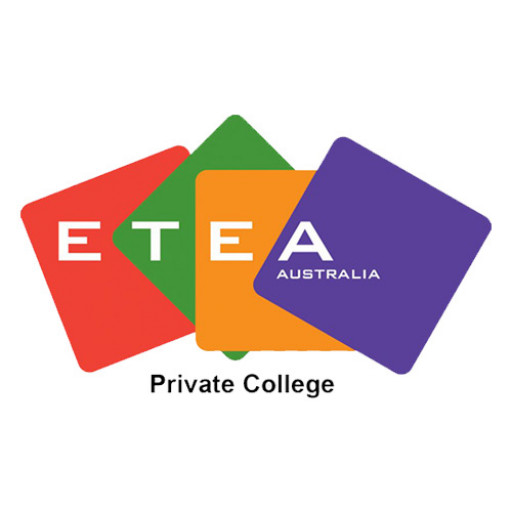The Light Vehicle Mechanical Technology program offers students comprehensive training and practical skills to excel in the automotive repair and maintenance industry. Designed to equip learners with the essential knowledge needed to work on modern light vehicles, this course covers a wide range of topics, including engine diagnostics, engine rebuilds, brake systems, steering and suspension, electrical systems, and vehicle safety. Throughout the program, students gain hands-on experience working with current automotive technology, tools, and diagnostic equipment, preparing them for employment as qualified light vehicle mechanics. The curriculum emphasizes both theoretical understanding and practical application, ensuring graduates can confidently undertake repairs, maintenance, and servicing of various makes and models of light vehicles. The program also includes training in workplace safety, customer service skills, and industry standards to prepare students for the demands of the automotive service industry. Upon completion, graduates are well-equipped to pursue careers in automotive workshops, dealerships, or own their repair business, with the skills needed to diagnose and repair vehicle faults efficiently. This program is suitable for individuals passionate about cars and mechanical work, seeking a pathway into the vibrant and evolving automotive industry. Participants will benefit from experienced instructors, state-of-the-art facilities, and industry placements, providing real-world experience and improving employment prospects. Whether you are starting your career or seeking to enhance your current automotive skills, this program offers a solid foundation to succeed in the dynamic field of light vehicle technology.
Light Vehicle Mechanical Technology program provides students with comprehensive skills and practical knowledge essential for a successful career in the automotive industry. This course is designed to equip learners with the ability to diagnose, repair, and maintain a wide range of light vehicle systems, including engines, transmissions, steering, suspension, brakes, and electrical systems. Throughout the program, students will engage in hands-on training in state-of-the-art workshops, allowing them to develop proficiency in using industry-standard tools and diagnostic equipment. The curriculum emphasizes not only technical skills but also safety procedures, workplace communication, and customer service skills, preparing graduates to meet the demands of the modern automotive service sector.
Students will learn about automotive technology principles, including internal combustion engine operation, computer-controlled systems, and hybrid vehicle technology. The program also covers electronic diagnostics, fuel systems, and emission controls, ensuring graduates are well-versed in the latest automotive innovations. Practical assessments are integrated throughout the course to ensure learners can apply theoretical knowledge effectively in real-world scenarios.
The course is suitable for individuals interested in pursuing a career as an automotive technician, mechanic, or service technician for light vehicles such as cars and small trucks. Upon completion, graduates will be qualified to undertake further certifications or employment opportunities within the automotive retail and service industry. Our program aims to produce highly skilled, industry-ready professionals who can contribute effectively to vehicle maintenance, repair, and diagnostics. With a focus on practical learning and industry alignment, the Light Vehicle Mechanical Technology program prepares students for the evolving automotive landscape, ensuring they are equipped with the skills needed to excel and adapt in a competitive employment market.
The Light Vehicle Mechanical Technology program is designed to provide students with comprehensive skills and knowledge necessary for a career in the automotive repair and maintenance industry. To successfully complete the program, students are typically required to undertake a combination of theoretical coursework and practical training modules. These modules cover a broad range of topics including basic engine repair, brake systems, suspension and steering, electrical systems, and diagnostic techniques. The program emphasizes the development of hands-on skills through workshops and real-world applications, ensuring graduates are well-prepared for entry-level positions in automotive service centers, dealerships, or as independent technicians.
Students must demonstrate proficiency in using diagnostic tools and serial testing equipment, as well as understanding the importance of workplace safety and environmental compliance in automotive workshops. Throughout the program, students are assessed through a series of practical examinations, written tests, and project submissions designed to gauge their technical competence and problem-solving abilities. To be eligible for graduation, students are generally required to complete all coursework satisfactorily, participate actively in practical sessions, and meet the required hours of industry placement or work experience, which provides invaluable exposure to professional standards and practices.
Additionally, some programs may require students to pass a final assessment or comprehensive exam that tests their overall understanding of vehicle systems and their ability to troubleshoot and repair automotive issues efficiently. The program aims to equip graduates with not only technical expertise but also communication and customer service skills essential for working effectively with clients and colleagues. Students are encouraged to stay updated with evolving automotive technologies, including hybrid and electric vehicle systems, as part of ongoing professional development. Overall, the Light Vehicle Mechanical Technology program prepares students for a dynamic and evolving industry, ensuring they have the practical skills, theoretical knowledge, and industry insight necessary for successful employment and career progression in the automotive sector.
The Light Vehicle Mechanical Technology program offers various financing options to assist students in funding their education. Students can explore government assistance programs such as Austudy and Youth Allowance if they meet specific criteria, including age and study load. Additionally, students may qualify for VET Student Loans, which provide income-contingent loans to help cover tuition fees for eligible courses. Private financing options are also available, including scholarships and grants offered by the institution for outstanding academic performance or specific student demographics. Many students opt for payment plans that allow them to pay tuition in installments, easing the financial burden over the duration of the course. Some students might seek external scholarships from automobile industry partners, community organizations, or corporate sponsors that support vocational training in mechanical technology. It is advisable for prospective students to consult with the institution’s student finance services to explore tailored funding options and understand eligibility requirements. Furthermore, banks and financial institutions sometimes provide education loans that can be used for vocational training, with varying interest rates and repayment terms. The program’s tuition fees are structured to be affordable and competitive within the Australian vocational education sector, and comprehensive financial advice is often available to help students manage their funding. The institution encourages students to plan their finances ahead of time to ensure they can focus fully on their studies without undue financial stress. Overall, the combination of government funding, private scholarships, installment payment options, and external loans provides students multiple pathways to finance their studies in Light Vehicle Mechanical Technology, supporting their career development in the automotive servicing and repair industry.
Light Vehicle Mechanical Technology is a specialized program designed to equip students with the essential skills and knowledge required for a career in the automotive repair and maintenance industry. The program covers fundamental concepts of automotive technology, including engine diagnostics, electrical systems, brakes, suspension, steering, and lubrication. Students learn practical skills through hands-on training, enabling them to competently perform repairs, troubleshoot faults, and conduct routine maintenance on a variety of light vehicles. The curriculum emphasizes safety standards, industry best practices, and the latest technological advancements in automotive systems.
The program is tailored to meet the growing demand for qualified automotive technicians within the automotive industry. It provides a comprehensive understanding of how light vehicles operate and how to effectively service and repair them. Throughout the course, students develop critical thinking and problem-solving skills that are essential for diagnosing complex mechanical and electrical issues quickly and accurately. The training often includes work placements or industry projects that allow students to gain real-world experience, fostering workplace skills and professional confidence.
Graduates of the Light Vehicle Mechanical Technology program are well-prepared to pursue careers as vehicle service technicians, maintenance technicians, automotive repairers, or start their own automotive businesses. The program emphasizes continuous learning, safety protocols, and adherence to environmental standards, ensuring students are prepared for the evolving automotive landscape. The qualification obtained upon completion is recognized within the automotive service and repair sector, providing a pathway for employment in these fields or further study in related areas such as automotive engineering or advanced diagnostics. The program supports students in developing both theoretical knowledge and practical expertise, making them valuable assets to automotive service centers, dealerships, and independent repair workshops.









